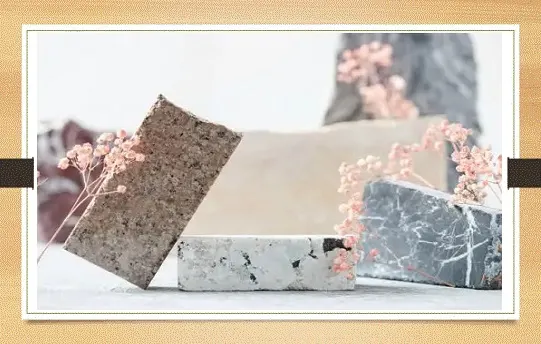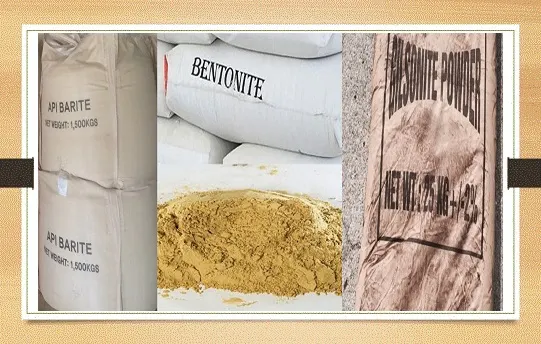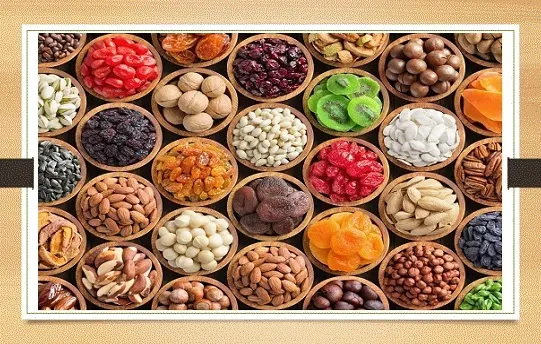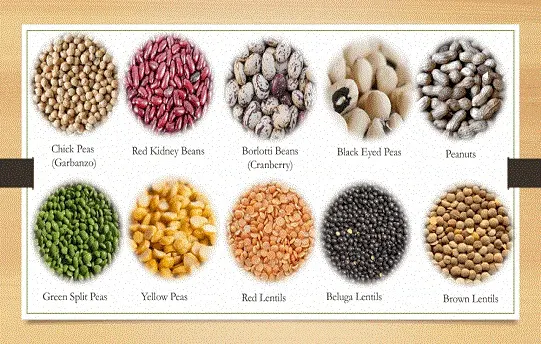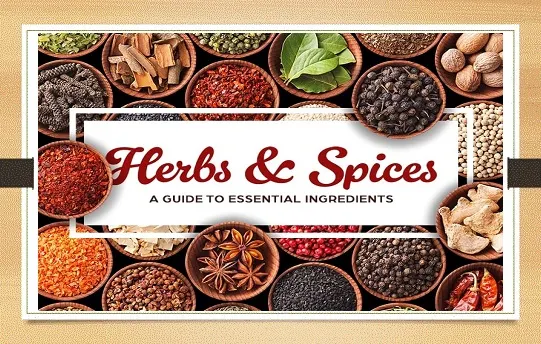Iran Export
What is Iran's most significant export? This question lingers in the minds of many individuals, and this website endeavors to answer it. Generally, Iran's exports can be categorized into two major sectors: construction materials (i.e., stone, bricks, plaster, cement, iron doors and windows, electric wire, etc.) and food products (i.e., pistachios, saffron, dates, salted sturgeon eggs, dried fruits, peanuts, etc.).
Iran is a major exporter of various commodities, including petroleum and petrochemical products, natural gas, fruits and nuts, carpets and textiles, and minerals. Chemical....

What stones are exported from Iran?
As mentioned, the variety of stone colors and materials in our country is huge and there may be 30 different stone colors. Therefore, building stone used for decoration and building facades is more popular in other countries. Marble, travertine, marble, and porcelain are among the most popular building stones in Iran.
Stones exported from Iran to other countries include decorative gems such as turquoise and industrial stones such as iron ore and salt.
Iran is also a significant exporter of stones and minerals, including various types of granite, marble, travertine, and onyx. Iran has rich deposits of natural stones and has become a hub for processing and exporting high-quality stone products to countries around the world. Iran is known for its premium quality stone products, which are widely used in construction, interior design, and landscaping projects.

Ceramic export
Iran is also a significant exporter of ceramics, including tiles, sanitary ware, tableware, and decorative ceramics. Iran has a long history of ceramics production, dating back to ancient times, and today the country has a well-established ceramics industry that produces high-quality products for both domestic and international markets. Iranian ceramics are known for their unique designs, high quality, and affordability, and are exported to many countries around the world.
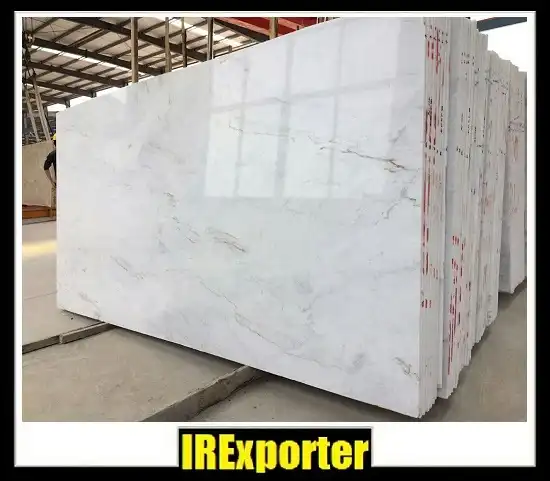
Which countries export stone from Iran?
Iran exports stones to almost all neighboring countries and also exchanges stones with friendly and allied countries. Countries that are Iran's export destinations include Oman, Qatar, Turkey, India, Russia, and China. European, American, and maritime countries such as Italy, Canada, and Australia also import stones from Iran.
Iran's export products encompass a wide range of industries, including construction materials and food products. Exporting serves as a means of global interaction and facilitates the transfer of goods between countries. Without exports, many economies would have faced paralysis decades ago, and this holds true even today for numerous nations. Currently, Iran supplies its export products to numerous countries around the world.
All types of Iranian export products
Today, very important exports are made in different countries of the world, and this process takes place in different regions. Among the most important exports of Iran, the following can be noted:
Export of food - Export Pharmaceutical - Export of cosmetics - Export of building materials - Export of textiles and clothing - Export of mineral raw materials - Export of all types of metals - Export of timber.
Iran's export products are goods that are also manufactured within Iran. The range of Iran's export commodities is quite extensive. Iran has a long-standing history as one of the world's oldest exporting nations. Historical records indicate that Iranians have been actively involved in exporting with neighboring countries since at least the 3rd millennium BC.
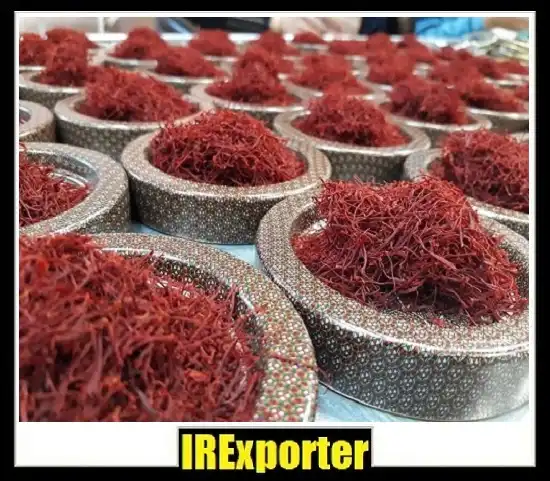
Saffron is Iran's most sought-after export product
An export product is a product that includes a lot of food. Agriculture in Iran has a history of several thousand years and is one of the oldest and most unique types of export goods of Iran, and the best product to produce in Iran is saffron.
Until the last decade, saffron was mostly produced in Khorasan province, but thanks to the new policy of the Organization of Agricultural Jihad, today the Iranian plant is cultivated in various parts of the country, but it is still the best and most reliable Iranian crop.
However, the world market still favors Iranian saffron, and with planning in this field, Iran's unique position in saffron production can be cemented forever. About 120.000 kilos of Iranian saffron is exported to more than 25 countries of the world every year, which makes the country very profitable.
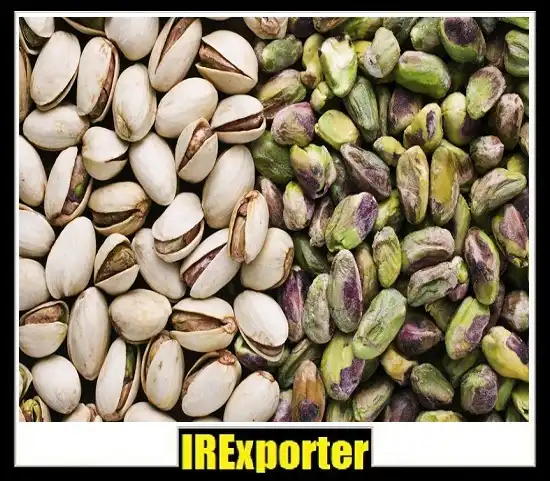
Nut export
Iran is a major exporter of nuts, particularly pistachios and almonds. Iran is one of the largest producers of pistachios in the world, with a well-established pistachio industry that produces high-quality nuts for both domestic and international markets. Iranian pistachios are known for their unique taste, texture, and high oil content, and are widely used in various food products, such as confectionery, baked goods, and snack foods. Almonds are another important nut export from Iran, and the country is known for producing high-quality almonds that are used in a variety of food products, including confectionery, baked goods, and snack foods.
Pistachios are a popular export item
An export commodity is a commodity that is largely produced from the agricultural products of Iran. Pistachios are one of the agricultural crops of Iran and now Iran is known as the largest pistachio producer in the world. Pistachios are grown in the desert regions of Iran in parts of Khorasan Province, Semnan Province, and Fars Province.
Kerman province is the biggest and best producer of pistachios in Iran. This export product comes in different varieties, some of the best exportable Iranian pistachio varieties include Kale Ghoochi, Fandooghi, Ahmad Aghaei, Akbari, and Badami. In addition, pistachios are one of the products exported together with pistachios. Iranian pistachios are currently exported to over 75 countries worldwide.
Vietnam is the largest importer of Iranian pistachios in the world, and Germany is the largest buyer of Iranian pistachios in Europe. Also, according to statistics in this field, pistachio is known as the most valuable agricultural product in Iran.
Unfortunately, pistachios, like saffron, do not pay attention in the export sector. Recently, the United States has established itself as one of the countries growing pistachios in the world market, and for this, it is necessary to implement special programs for the authorities. Iran continues to be the world's largest exporter of pistachios for this valuable export product.
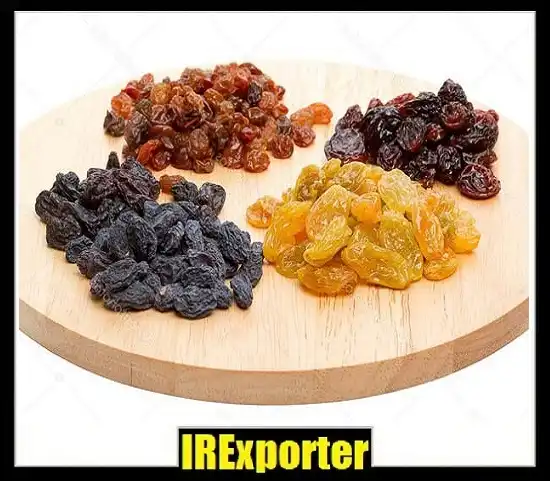
Raisins are an export commodity with a hungry world market
Raisins are one of the popular dried fruits for export and have an enthusiastic global market. Raisins and grapes are said to be Iran's third-largest export after oil and pistachios. Raisins are products produced together with grapes, and Takestan City is known as the largest producer of raisins in Iran.
In total, Iran produces about 200.000 tons of raisins annually, a fifth of which is consumed domestically, and about 150.000 to 160.000 tons of this product are exported. About 54 countries around the world are buyers of Iranian raisins, including Spain, the Netherlands, Iraq, Canada, Germany, Australia, Brazil, Slovakia, Austria, the United Arab Emirates, and the United States.
If you check the world statistics, you will see that Iran ranks first in the world in terms of the variety and quality of building stones. It is interesting to know that Iran ranks fourth in the world in terms of building stone reserves and 10٪ of the world's building stone reserves are in Iran. This statistic has made Iran one of the largest investment points in the field of building stones in the world.
Iran is very rich in natural resources. This unique and valuable resource is known worldwide and is a huge competitive advantage for Iran. one of these natural resources, and oil and valuable products such as peanuts and saffron are exported to other countries, making a part of the country's non-oil income dependent on it.
Did you know that the world's building stone reserves are about 15 billion tons? Did you know that the global building stone market has a trading capacity of $80 billion? Granite, travertine, and marble are the most common of these deposits.
The amount of these mines in the country is so great that the Iranian stone market is saturated, and this is the main reason for exporting these products to other countries.
Because of this large number and the creation of a great variety of colors of stones, Iran is one of the pillars of stone exports in the Middle East, despite the political and economic problems, it still has a percentage of stone exports in neighboring countries.
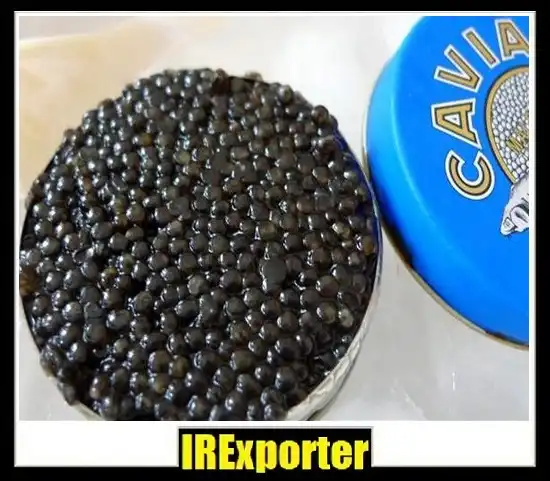
Caviar is an expensive export product
Caviar is one of Iran «s most expensive exports. Caviar is one of the expensive foods that is not consumed in Iran but has a large number of foreign customers, and thus has long been known as one of Iran» s export products. Caviar is sturgeon eggs.
And according to research conducted in this field, it is known as the most expensive food in the world. The Caspian Sea is known as the best habitat for sturgeon, which provides more than 90٪ of the world's caviar, and for this reason, Iran can present itself as one of the largest producers and exporters of caviar in the world.
There are many different types of sturgeon, and the most famous among them are Chalbash, whale, lamb, Ozenbrun, and Tas fish. In Iran, Gilan province is known as the largest producer of caviar in the country, and now various farms have been built in the periphery of the country to produce this export item. And the annual production of caviar is expected to reach 10 tons, of which more than 95٪ is exported.
Caviar export refers to the process of exporting caviar, the eggs of sturgeon, from one country to another. Caviar is a luxury food product prized for its unique flavor and texture, and is considered a delicacy in many countries. Exporting caviar can provide a valuable source of income for countries and businesses that produce and process this product. The caviar export industry is subject to various regulations and standards, including restrictions on fishing and harvesting to protect sturgeon populations, as well as import and export restrictions to ensure the quality and safety of the product being traded.
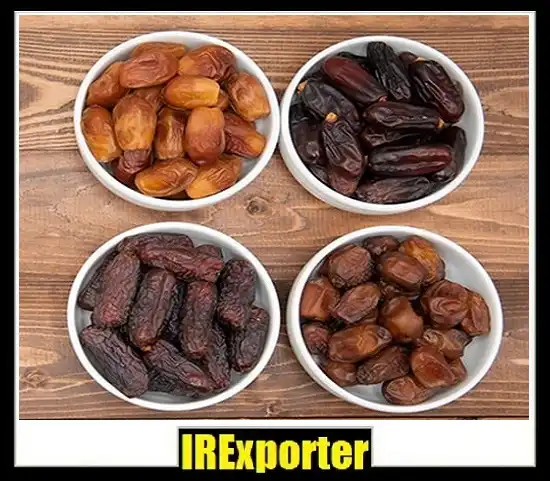
Iran dates as an export product
The imported date product is one of the agricultural products of Iran, which has been the focus of Iranian businessmen for the past few years, and currently, Iran is at the top of the world's latest exporters. Iranian dates are produced in different varieties and this high-quality product is produced in different parts of the country.
Iran's main regions producing export data are the provinces of Kerman, Khuzestan, Hormozgan, Sistan and Baluchistan, Fars, and Bushehr. Also, among the different varieties of Iranian dates, 12 varieties are exported to the world market, the most valuable of which is the Mazafati and Pyaram varieties.
About 950.000 tons of dates are produced in Iran every year, a part of which is consumed domestically, and the rest is exported. Russia, Malaysia, Indonesia, India, and China are the most important importers of Iranian dates.
Date export refers to the process of exporting dates, a type of dried fruit, from one country to another. Dates are a staple food in many countries and are a rich source of vitamins, minerals, and fiber. They are also used as a sweetener in many food products and as an ingredient in various cuisines. Exporting dates can provide a valuable source of income for countries and farmers that produce a surplus of the fruit and can help meet the demand for this product in other countries. The date export industry is subject to various regulations and standards to ensure the quality and safety of the dates being traded.
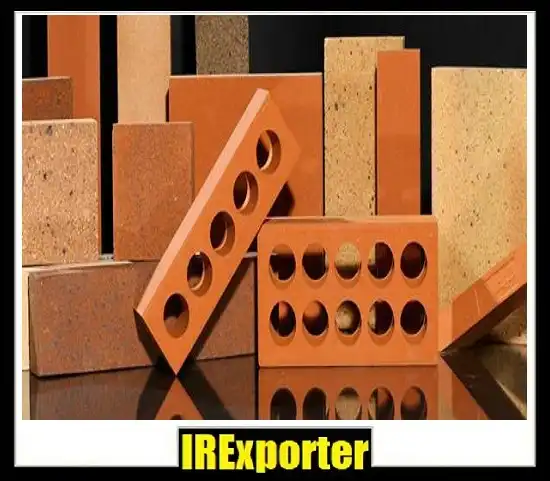
Brick export
Iran is also a major exporter of bricks, both fired clay bricks and lightweight aerated concrete bricks. The brick industry in Iran is well-developed, with a number of large-scale brick factories producing a wide range of products for both domestic and international markets. Iran's brick exports are in high demand due to the country's rich clay deposits, advanced brick-making technology, and competitive pricing. The brick products from Iran are widely used in construction, especially in the Middle Eastern region.
Tehran Exporter
Tehran is the capital city of Iran and is one of the country's major centers for trade and commerce. Many businesses in Tehran are involved in exporting a wide range of products, including:
Tehran is also home to numerous trading companies, logistics firms, and other businesses that support the export industry in Iran.
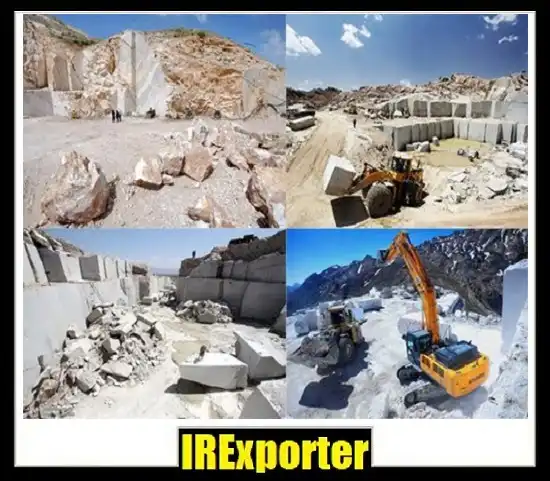
Minerals export
Iran is rich in minerals and is a significant exporter of various minerals, including iron ore, aluminum, copper, steel, lead, zinc, and precious metals such as gold and silver. Iran is also a major producer of industrial minerals, including salt, sulfur, and feldspar. The minerals sector in Iran is well-developed, with a number of large mining companies operating in the country. Iran's mineral exports are in high demand due to the country's rich mineral resources, advanced mining technology, and competitive pricing. The minerals exported from Iran are used in various industries, including construction, metallurgical, and chemical.
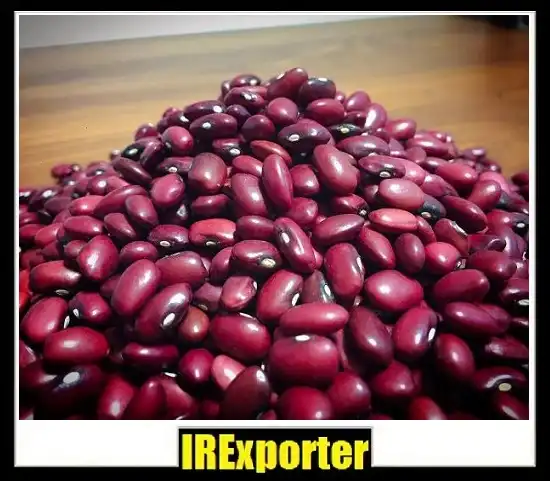
Legume export
Legume export refers to the process of exporting legume crops from one country to another. Legumes are a group of plants that include beans, lentils, peas, chickpeas, and soybeans. They are an important source of protein, fiber, and other nutrients, and are widely traded globally for use as food and feed ingredients. Exporting legumes can provide a valuable source of income for farmers and countries with favorable climates and conditions for growing these crops.
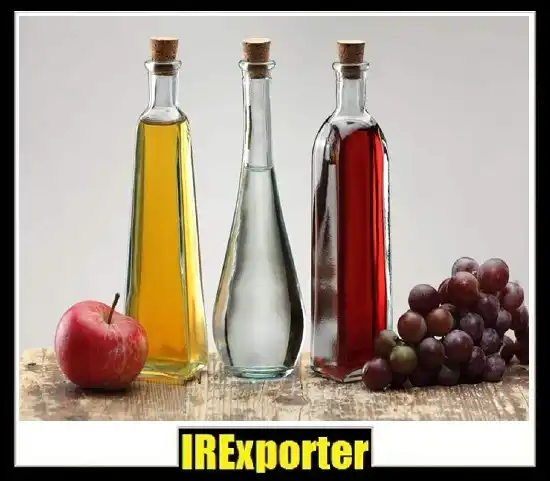
Additives export
Additives export refers to the process of exporting food additives from one country to another. Food additives are substances added to food products to enhance their flavor, texture, appearance, or shelf life. Some common examples of food additives include preservatives, flavorings, sweeteners, colors, and emulsifiers. Exporting food additives can provide a valuable source of income for companies that produce these substances, and can help meet the demand for these products in countries where they are not readily available or produced. The trade of food additives is subject to regulations and standards set by international organizations and governments to ensure the safety and quality of the products being traded.
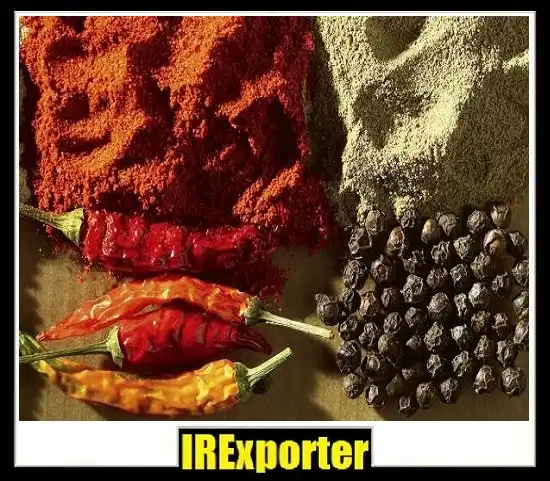
Spices export
Spice export refers to the process of exporting spices from one country to another. Spices are plant-based substances used for flavoring, coloring, or preserving food. Some common examples of spices include pepper, cinnamon, ginger, cloves, and turmeric. Exporting spices can provide a valuable source of income for countries and farmers that produce a surplus of these crops, and can help meet the demand for these products in other countries. The spice export industry is subject to various regulations and standards set by international organizations and governments to ensure the quality and safety of the spices being traded.
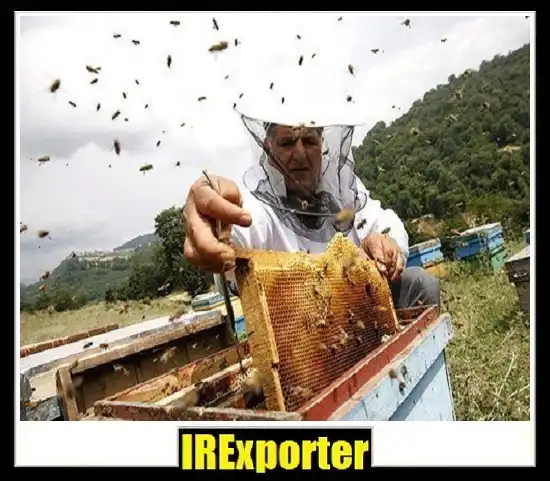
Honey export
Honey export refers to the process of exporting honey, a sweet substance produced by bees, from one country to another. Honey is a natural sweetener used in a wide range of food products and is prized for its unique flavor and health benefits. Exporting honey can provide a valuable source of income for countries and beekeepers that produce a surplus of this product and can help meet the demand for this product in other countries. The honey export industry is subject to various regulations and standards set by international organizations and governments to ensure the quality and safety of the honey being traded.
What are the steps for exporting goods from Iran?
Determine the product classification and requirements for export. Obtain necessary licenses and permits. Secure proper packaging and labeling for the goods. Arrange for transportation and shipping of the goods. Prepare and submit all required documentation, including invoice, packing list, and customs declaration form. Pay any applicable taxes and fees. Complete any post-shipment formalities, if required.
Are there any restrictions on exporting from Iran?
Yes, there are restrictions on exporting from Iran due to international sanctions and trade embargoes. Certain goods, such as dual-use items, are restricted and require a license for export. It is important to check and comply with all relevant regulations and restrictions before exporting from Iran.
| Heading |
Content |
| Section 1: Introduction |
Welcome to our article about the Iranian Export Supplier and Exporter Company. In this article, we will provide you with detailed information about our company's profile, product catalog, quality assurance, pricing and payment options, as well as customer support services. We aim to offer a comprehensive overview of our business to help you make informed purchase decisions.
|
| Section 2: Company Profile |
Our company is a leading Iranian export supplier and exporter, specializing in various industries. With years of experience, we have built a strong reputation for delivering high-quality products to our international clients. Our dedicated team ensures that all orders are handled efficiently and with utmost professionalism. We take pride in our commitment to customer satisfaction.
|
| Section 3: Product Catalog |
Our extensive product catalog encompasses a wide range of items tailored to meet the diverse needs of our customers. Whether you're looking for industrial machinery, agricultural equipment, or consumer goods, we have you covered. Each product in our catalog undergoes rigorous quality checks to ensure its reliability and performance.
|
| Section 4: Quality Assurance |
Quality assurance is our top priority. We source products from trusted manufacturers and suppliers, ensuring that they meet international quality standards. Our team of experts conducts thorough inspections and tests to guarantee the quality, durability, and safety of every item. We are committed to providing you with products that exceed your expectations.
|
| Section 5: Pricing and Payment |
We offer competitive pricing for our products, and our pricing structure is transparent and fair. The prices may vary based on factors such as quantity, customization, and shipping options. For detailed pricing information, please contact our sales team. We accept various payment methods to ensure a convenient and secure transaction process.
|
| Section 6: Customer Support |
We prioritize customer support and aim to provide a seamless experience throughout your purchase journey. Our dedicated support team is available to address any inquiries, provide assistance with product selection, and guide you through the ordering process. We strive to establish long-term relationships with our customers and are committed to their satisfaction.
|
Frequently Asked Questions
-
What industries does your company specialize in?
Our company specializes in various industries, including industrial machinery, agricultural equipment, and consumer goods.
-
How do you ensure the quality of your products?
We ensure the quality of our products by sourcing them from trusted manufacturers and conducting thorough inspections and tests.
-
What payment methods do you accept?
We accept various payment methods, including bank transfers, credit cards, and online payment platforms.
-
Do you offer customization options for your products?
Yes, we offer customization options for certain products. Please contact our sales team for more information.
-
How can I contact your customer support team?
You can contact our customer support team by phone, email, or through our website's live chat feature.
Unveiling the Richness of Iran's Export Industry
In the heart of Iran's bustling business landscape lies a treasure trove of premium exports that transcend borders and captivate the world. As we delve into the offerings of Iran Export, we embark on a journey through a myriad of exquisite products, each a testament to the country's rich heritage and craftsmanship.
Navigating the Irexporter Company
At the forefront of Iran's export prowess stands the Irexporter company, a beacon of reliability and excellence. This entity serves as a gateway to a diverse range of top-quality exports, ensuring that the global market is infused with the finest that Iran has to offer.
Marveling at Marble Stone Export
The allure of marble transcends time, and Iran's Marble Stone Export leaves an indelible mark. Immerse yourself in a world of sophistication as Iranian marble graces spaces with its timeless elegance, adding a touch of opulence to every setting.
Granite Stone Export: Where Strength Meets Beauty
In the realm of robust beauty, Iran's Granite Stone Export takes center stage. Unearth the strength and resilience of Iranian granite, a material that not only captivates with its aesthetics but stands as a testament to enduring quality.
Onyx Stone Export: Unveiling Nature's Masterpiece
For those seeking the epitome of natural beauty, Onyx Stone Export from Iran is a revelation. With its translucent glow and intricate patterns, Iranian onyx becomes a statement piece, seamlessly merging nature's artistry with human craftsmanship.
Travertine Stone Export: Bridging Elegance and Durability
In the world of architecture and design, Travertine Stone Export from Iran emerges as a versatile choice. Discover the harmonious blend of elegance and durability as Iranian travertine graces interiors and exteriors with its timeless appeal.
Nut Export: A Crunchy Delight
Iran's Nut Export industry introduces a delightful crunch to global palates. Indulge in the richness of Iranian nuts, known for their superior quality and freshness, elevating snacking to an unparalleled experience.
Legume Export: Nutrient-Rich Goodness
Embark on a journey of health with Iran's Legume Export. Packed with essential nutrients, Iranian legumes find their way to kitchens worldwide, contributing not only to flavor but also to the well-being of those who savor them.
Additives Export: Enhancing Culinary Creations
For culinary enthusiasts and chefs alike, Iran's Additives Export opens a realm of possibilities. Elevate your gastronomic creations with premium Iranian additives, ensuring that every dish is a masterpiece of flavors and textures.
Spices Export: A Symphony of Aromas
Delve into the aromatic world of Iranian spices through Iran's Spices Export. From saffron's golden hue to the warm embrace of cumin, experience the richness that Iranian spices bring to global kitchens, making every meal a sensorial delight.
Caviar Export: Opulence on Every Plate
In the realm of gastronomic indulgence, Iran's Caviar Export stands as a symbol of opulence. Savor the luxurious taste of Iranian caviar, a delicacy that has graced the tables of connoisseurs around the world.
Embark on a journey of discovery as you explore the world of premium Iranian exports. Uncover great deals and establish connections with trusted suppliers from Tehran, ensuring that you have access to the finest products that Iran has to offer. The legacy of Iranian craftsmanship awaits, inviting you to elevate your spaces, enhance your culinary creations, and indulge in the epitome of quality and elegance.














